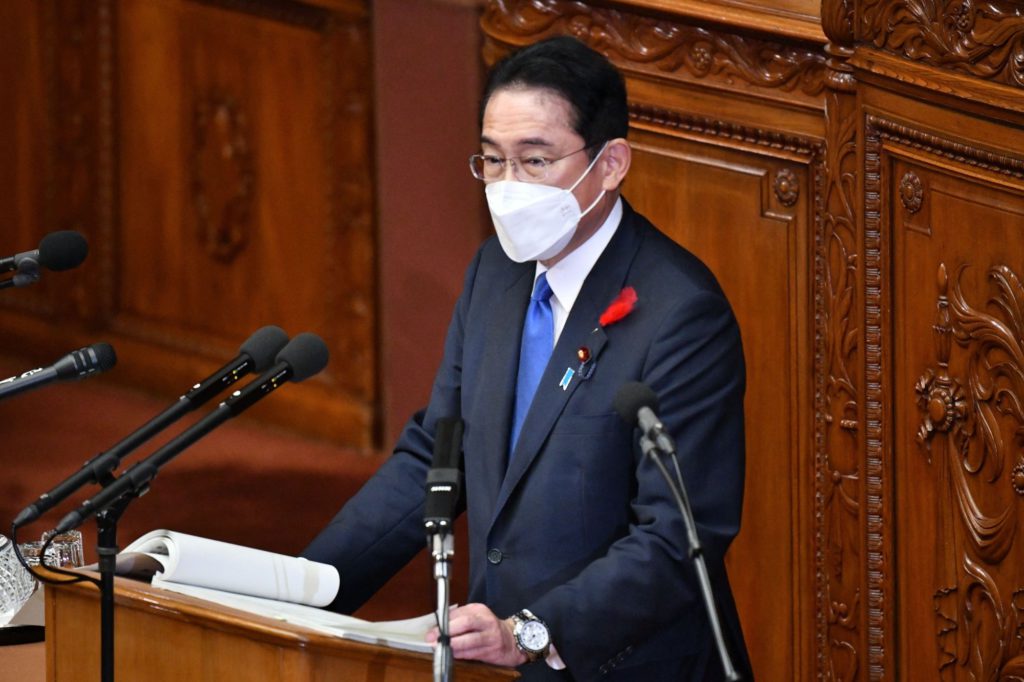Japanese Prime Minister Fumio Kishida said he would strengthen the economy in a way that makes the most of the weak yen, including encouraging the building of chip and battery factories as well as pushing farm exports.
(Bloomberg) — Japanese Prime Minister Fumio Kishida said he would strengthen the economy in a way that makes the most of the weak yen, including encouraging the building of chip and battery factories as well as pushing farm exports.
“I will press ahead with strengthening an economic structure that capitalizes on the weak yen,” he said Monday at the opening of a new session of parliament. “While drawing out the maximum benefits of the weak yen, I will proceed with policies that return them to the people.”
Kishida is trying to ease the blow from a currency that has lost about 20% of its value this year against the dollar. The prime minister has ordered his cabinet to compile an economic package by the end of the month with an unspecified value, as higher commodity prices and a rapid weakening of the yen add to headwinds for small companies and consumers.
The speech came as Kishida, who has been in office for about a year, faces a struggle to restore voter trust in his government. His cabinet’s support rate has fallen to record lows amid widespread unease over links that have emerged between his ruling Liberal Democratic Party and the South Korean-based Unification Church.
But Kishida’s party does have some breathing space, with polls showing the support rate for leading opposition groups mired in single digits. After guiding the LDP to victory in an upper house election in July, Kishida may not need to face another national vote for three years. Any challenge to his leadership, and key policies such as his New Capitalism plan for a more equal society, is likely to come from within the LDP.
Japan’s Kishida Orders Stimulus as Analysts Warn of Overspending
On measures to tackle electricity price rises, Kishida said he would put together “unprecedented, bold measures” to directly reduce the impact on households and businesses.
Kishida said he’d aim for 5 trillion yen ($34.5 billion) in consumption by inbound tourists, with the return of visa-free travel and individual travel from Oct. 11. The moves would end most of the border restrictions introduced to try to slow the spread of Covid-19.
The yen weakened past 145 per dollar in Monday trading, setting the stage for Japanese authorities to potentially intervene to prop it up for a second time this year. The Ministry of Finance spent 2.84 trillion yen in September to try to boost the currency.
Other comments:
- Will put together comprehensive economic measures this month to protect livelihoods from price rises
- Will shift toward an economy that can withstand crises, including by focusing on stable energy supply and food security
- Will deal with nuclear power issue head-on
- Will press ahead with joint development and mass production of next-generation semiconductors with US, as well as “beyond 5G” research and development
- Will seek to bolster public-private investment in semiconductors in Japan, it is said 10 trillion yen is needed over next 10 years
(Updates with comments from speech in ninth paragraph)
More stories like this are available on bloomberg.com
©2022 Bloomberg L.P.











